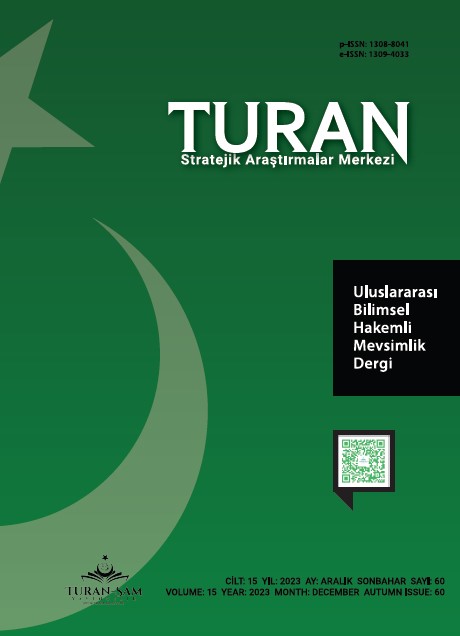BİRİNCİ MEŞRUTİYET MECLİS-İ MEBUSANINDA SANSÜR VE MATBUAT TARTIŞMALARI
PRESS FREEDOM DEBATES IN THE 1ST CONSTITUTIONAL MONARCHY PARLIAMENT
Author(s): Elif YEŞİLTEPE TURŞUCUSubject(s): Media studies, Constitutional Law, Political history, 19th Century, The Ottoman Empire
Published by: Sage Yayınları
Keywords: Ottoman Empire; 1st Constitutional Monarchy; Parliament; Press;
Summary/Abstract: In 1831, The history of the Ottoman press begins with the publication of the Takvim-i Vekayi with the will of II. Mahmut. In the following years, with the increase in the number of newspapers such as Ceride-i Havadis, Tercüman-ı Ahval, Tasvir-i Efkar and the development of journalism, the press became stronger and came out of the state monopoly. In the Ottoman newspapers, news and advertisements in the foreign press were published in addition to the internal news and the reforms that were wanted to be announced and adopted by the public. Dissident Ottoman intellectuals ensured the spread of the influence of anti-government views by publishing the articles they published on their political ideas in the newspapers they published. With the proliferation of such newspapers and journalists making political publications, disagreements with the government emerged, and deterrent reactions such as censorship and repression were applied. The Press Regulation, which was prepared in 1874, is one of them. When it came to the First Constitutional Period, the number of newspapers increased considerably. Although many journalists who fled abroad were able to return to the country thanks to the freedom created by the proclamation of the Kanun-i Esasi in 1876 and the constitutional guarantee of the freedom of the press, this atmosphere of freedom deteriorated as a result of the indefinite holiday of the Parliament. Article 12 of the Fundamental Law states that "Press is free within the scope of the law". Accordingly, freedom of the press is determined only to the extent permitted by law. The constitutional rights and freedoms that emerged in this period also affected the Republican period, which would be passed approximately 45 years later. The freedom of the press is defined in Article 77 of the 1924 Constitution by stating that “The press is free within the scope of the law and is not subject to inspection and examination before it is published”. According to this article, It is seen that the provision in Article 12 of the Legal Basis, which was valid during the 1st and 2nd constitutional monarchy periods, is exactly followed. In this paper, the debates and thoughts on the press and press life in the Parliament of the First Constitutional Period will be tried to be illuminated in the light of archival documents, newspapers of the period and minutes. At the starting point of the history of Turkish democracy, the views of the deputies of the period about the freedom of the press will be examined. In addition, it will be tried to reveal the actors who limit the relationship between the press and politics according to periodical conditions.
Journal: TURAN-SAM
- Issue Year: 15/2023
- Issue No: 60
- Page Range: 212-220
- Page Count: 9
- Language: Turkish

